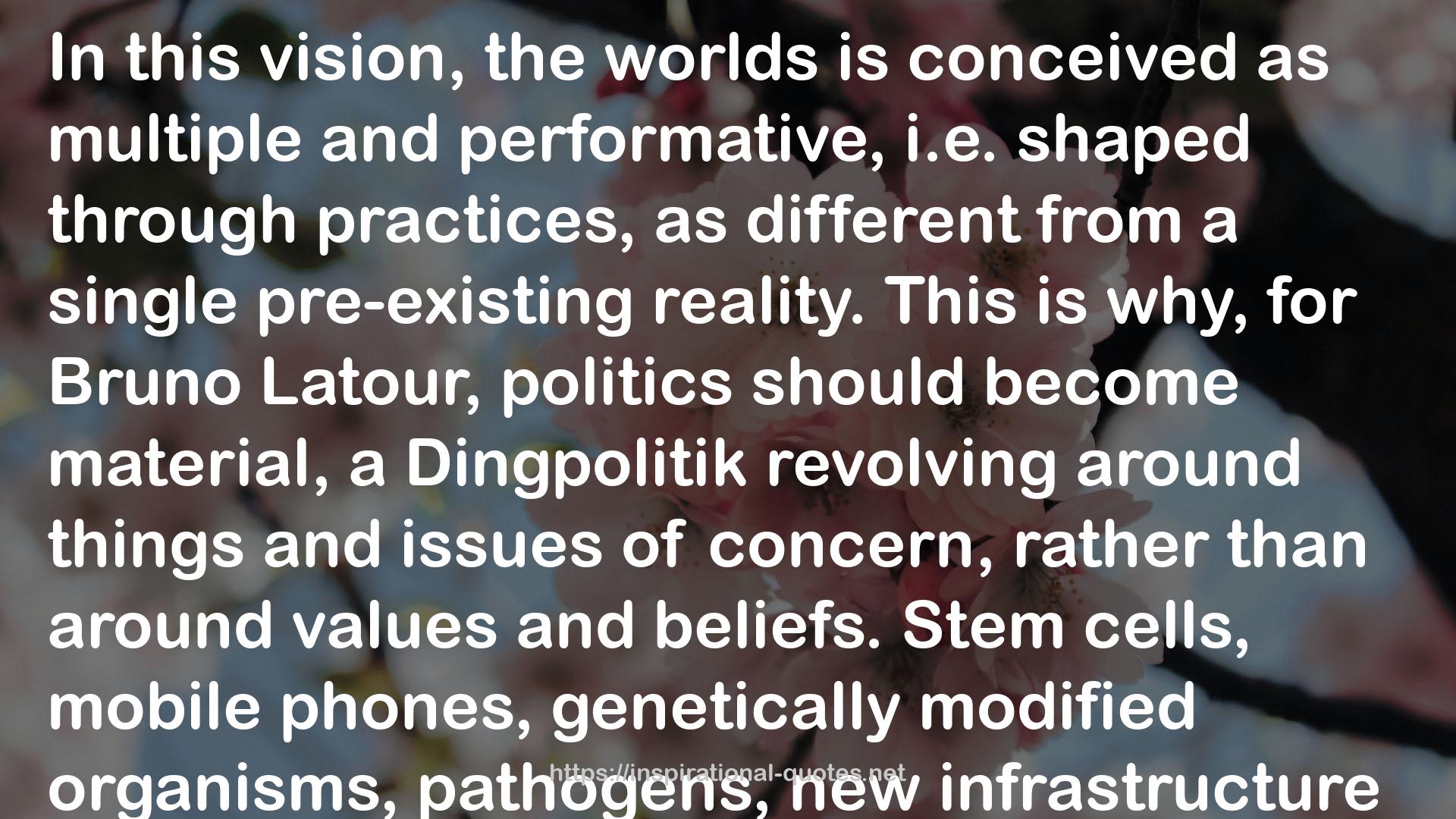" In this vision, the worlds is conceived as multiple and performative, i.e. shaped through practices, as different from a single pre-existing reality. This is why, for Bruno Latour, politics should become material, a Dingpolitik revolving around things and issues of concern, rather than around values and beliefs. Stem cells, mobile phones, genetically modified organisms, pathogens, new infrastructure and new reproductive technologies brings concerned publics into being that create diverse forms of knowledge about these matters and diverse forms of action - beyond institutions, political interests or ideologies that delimit the traditional domain of politics. Whether it is called ontological politics, Dingpolitik or cosmopolitics, this form of politics recognizes the vital role of nom-humans, in concrete situations, co-creating diverse forms of knowledge that need to be acknowledged and incorporated rather than silenced. Particular attention has gone to that most central organization of all for political geographers: the state. Instead of conceiving the state as a unified actor, it should be approached as an assemblage, which makes heterogenous points of order - geographic, ethnic, linguistic, moral, economic, technological particularities - resonate together. As such, the state is an effect rather than the origin of power, and one should focus on reconstructing the socio-material basis of its functioning. The concept of assemblage questions the naturalization of hegemonic assemblages and renders them open to political challenge by exposing their contingency. "
― Slavoj Žižek , Sex and the Failed Absolute
